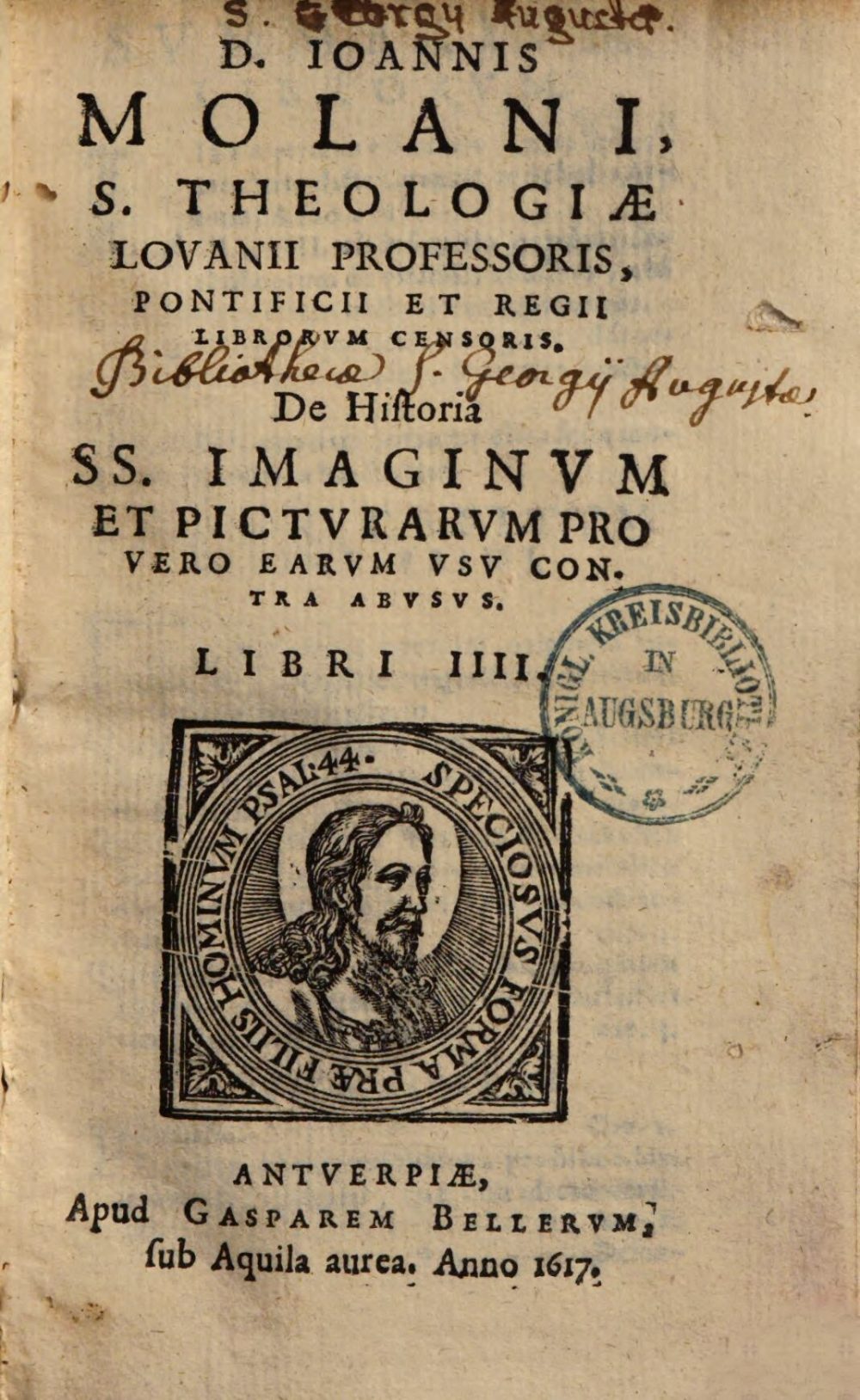
Augsburg, Staats- und Stadtbibliothek — Th H 1475. Digital Reproduction: München, Bayerische Staatsbibliothek, 2015.
Molanus condemns and ridicules the pagan gods and names several of them: Vulcan, Apollo, Saturn, Diana, Mercury, Pan, June, and Neptune.
“On such a vast subject, however, I shall quote a short passage from the Octavius of Minucius Felix to make the risible vanity of this kind of statues very clear: What! Do not the very form and exterior of your gods prove their ridicule and unworthiness? Vulcan, a lame and crippled god, Apollo, beardless in spite of such a long life, Aesculapius, with a beautiful beard, although he was Apollo’s son, always adolescent, Neptune’s glaucous eyes, Minerva’s cutting eyes, Juno’s bovine, Mercury’s winged feet, Pan’s horned feet hobbled at Saturn. Janus, for his part, has two faces, as if he could also walk backwards; Diana is sometimes a huntress who runs dressed, or she is a goddess of Ephesus loaded with numerous and abundant tits, or the goddess of the Crossroads, frightening with her three heads and her numerous hands. And your great Jupiter himself? Sometimes he stands without a beard, sometimes he stands with a beard; is he called Hammon, then he has horns; and with Capitolon, in this case, he carries thunderbolts; and with Latiaris, he is sprinkled with blood; and with Feretian, you can’t hear him. In short, so as not to prolong the review of the innumerable Jupiters, so many names to designate him, so many monsters.”
“Breviter tamen de multis pauca adferam ex Minutii Felicis Octavio, ut huiusmodi statuarum ridenda vanitas clarius intelligatur. Quid, inquit, formae ipsae et habitus? Nonne atguunt ludibria et dedecora Deorum vestorum? Vulcanus, claudus Deus et debilis; Apollo tot aetatibus levis; Aesculapius bene barbarous, esti semper adulescentis Apollinis filius; Neptunus glaucis oculis; Minerva caesiis; bubulis Iuno; Pedibus Mercurius alatis; Pan ungulatis: Saturnus compeditis; Ianus vero frontes duas gestat, quasi et aversus incedat; Diana interim est alte succincta venatrix et Ephesia mammis multis et verubus extructa et trvia trinis capitibus et multi manibus horrifica. Quid ipse Iuppiter vester? Modo imberbis statuitur, modo barbatus locatur et cum Hammon dicitur, habet cornua et cum Capitolonus, tunc gerit fulmna et cum Latiaris, cruore perfunditur et cum Feretrius, non auditur. Et ne longius inultos Ioves obeam tot sunt Iovis monstra quot nomina.’
Molanus 1996, 297-298.



